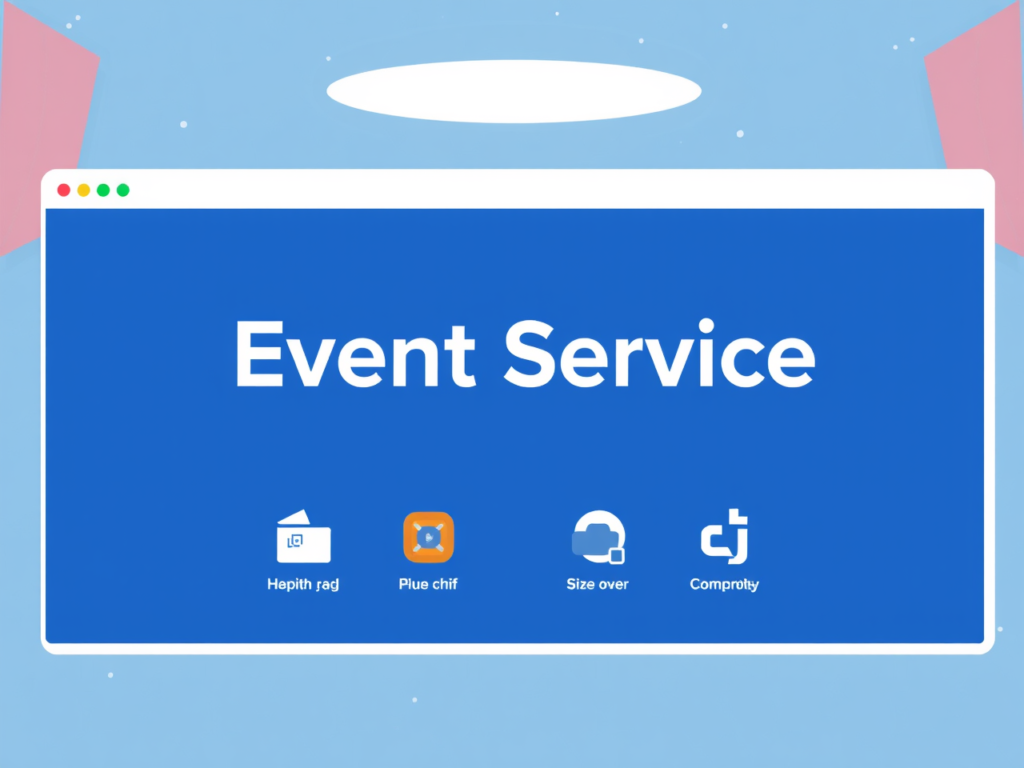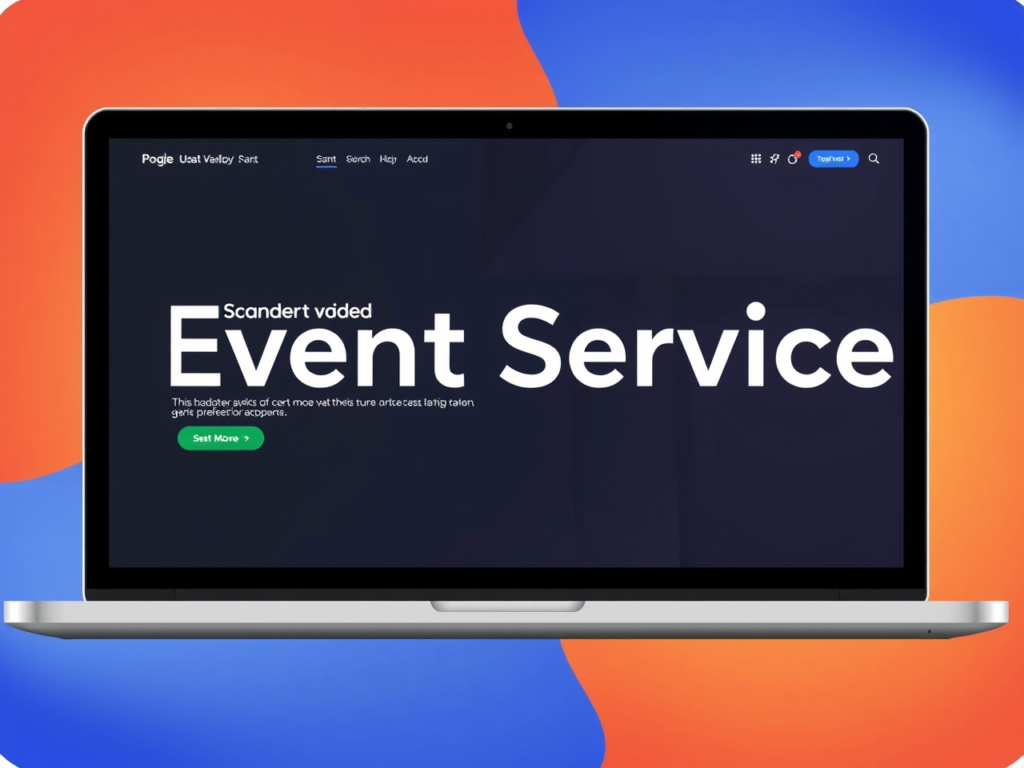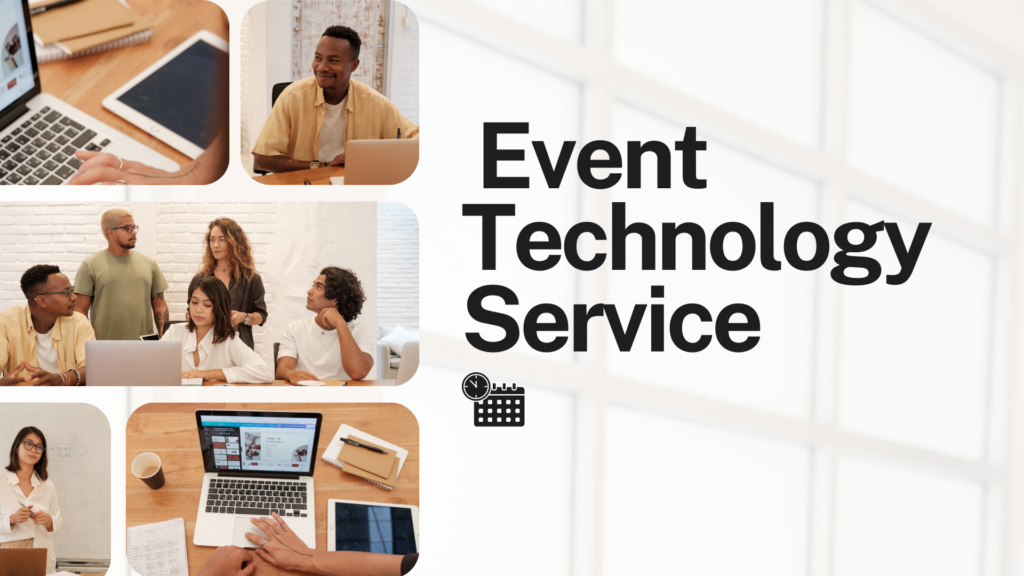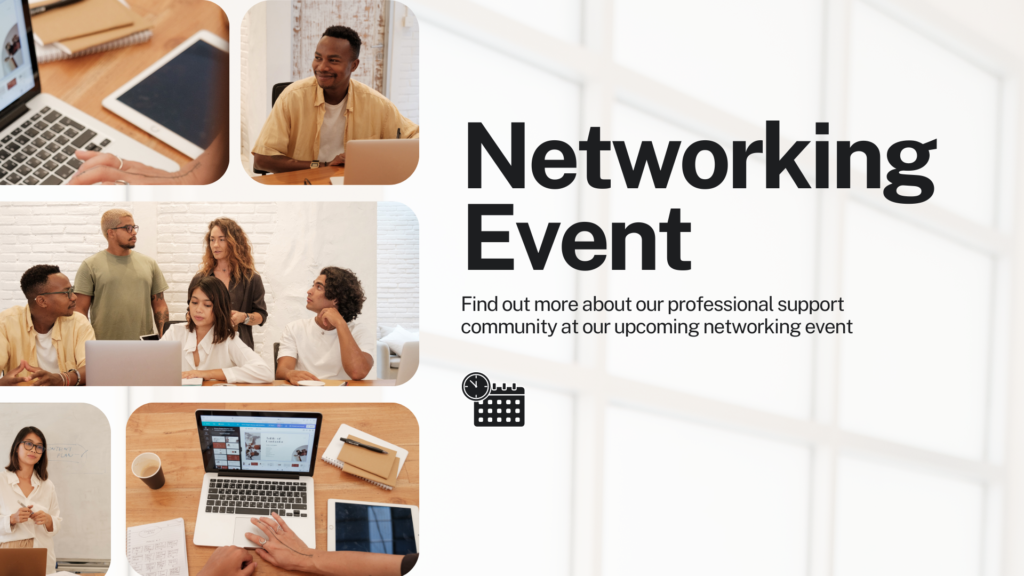Transforming Experiences Through Innovation
Events are everywhere around us. The success of events—be it corporate conferences, trade shows, or large-scale festivals—hinges increasingly on the integration of cutting-edge technology. Event technology services have become a cornerstone of modern event management, offering a wide range of tools and solutions that enhance the experience for both organizers and attendees. From improving engagement and interaction to streamlining operations and providing data-driven insights, these services are revolutionizing the way events are conceptualized and executed.
Event technology encompasses various digital tools and platforms that assist in the planning, execution, and analysis of events. This includes everything from event management software and mobile apps to virtual and augmented reality experiences, live streaming capabilities, and data analytics tools. By leveraging these technologies, event organizers can create more immersive, efficient, and impactful events that resonate with their audience.
As the landscape of events continues to evolve, the role of technology in shaping this industry cannot be overstated. Whether it’s facilitating seamless registration processes, enhancing audience engagement through interactive features, or providing real-time analytics to measure the success of an event, technology is at the heart of it all. According to a study by Allied Market Research, the global event management software market is projected to reach $14.4 billion by 2026, growing at a compound annual growth rate (CAGR) of 11.6% from 2019 to 2026. This statistic underscores the growing reliance on technology within the events sector.
In this comprehensive article, we will delve into the various facets of event technology services, exploring the key tools and solutions that are shaping the industry, and discussing the benefits they bring to both organizers and participants. From the planning stages to post-event analysis, we will examine how technology is transforming every aspect of event management.
The Evolution of Event Technology
Early Days of Event Technology
Event technology has come a long way from its humble beginnings. In the past, organizing an event was a labor-intensive process that relied heavily on manual tasks such as paper-based registration, mailing invitations, and using physical tickets. While these methods were effective in their time, they were time-consuming, prone to errors, and lacked the scalability required for larger events.
The advent of the internet and digital tools in the late 20th century marked the beginning of a new era in event management. Online registration systems began to replace paper forms, and email became a more efficient way to send out invitations and updates. However, these early tools were still relatively basic, and the concept of event technology as we know it today was in its infancy.
The Rise of Event Management Software
The real transformation began in the early 2000s with the development of event management software (EMS). These platforms offered a centralized solution for managing various aspects of an event, from registration and ticketing to scheduling and communication. As these systems evolved, they began to incorporate more advanced features such as attendee tracking, personalized agendas, and automated email marketing.

Event management software revolutionized the industry by streamlining processes, reducing administrative burdens, and providing event organizers with greater control and flexibility. It also paved the way for more sophisticated technologies to be integrated into the event management process.
The Impact of Mobile Technology
The proliferation of smartphones and mobile apps further accelerated the adoption of event technology. Mobile apps became an essential tool for event organizers, providing attendees with easy access to event information, schedules, maps, and networking opportunities. Features like push notifications, real-time updates, and interactive polls helped enhance the attendee experience and increase engagement.
Mobile technology also enabled the development of new solutions such as mobile ticketing, QR code scanning, and NFC-based access control, which simplified the check-in process and reduced wait times. The convenience and accessibility offered by mobile technology have made it a staple in modern event management.
The Era of Virtual and Hybrid Events
The COVID-19 pandemic had a profound impact on the events industry, forcing organizers to rethink traditional in-person events and explore virtual and hybrid alternatives. Virtual events, which were once a niche offering, quickly became the norm as lockdowns and travel restrictions made physical gatherings impossible.
Virtual event platforms emerged as a critical component of event technology services, providing a digital space for attendees to connect, engage, and participate in sessions from anywhere in the world. These platforms offered a range of features, including live streaming, virtual exhibitor booths, networking lounges, and interactive Q&A sessions.
Hybrid events, which combine in-person and virtual elements, also gained popularity during this time. Hybrid events leverage technology to create a seamless experience for both physical and remote attendees, offering the best of both worlds.
The Future of Event Technology
As we look to the future, event technology is expected to continue evolving, driven by advancements in artificial intelligence (AI), machine learning, augmented reality (AR), and virtual reality (VR). These technologies have the potential to create even more immersive and personalized experiences, further blurring the lines between physical and virtual events.
AI-powered tools can assist with everything from personalized recommendations to sentiment analysis, while AR and VR can create interactive and immersive environments that engage attendees in new and exciting ways. The future of event technology promises to be dynamic, with endless possibilities for innovation.
Key Components of Event Technology Services
Event Management Software (EMS)
Event Management Software is the backbone of modern event technology services. These platforms provide a comprehensive suite of tools for managing every aspect of an event, from planning and promotion to execution and analysis.
Features of Event Management Software
- Registration and Ticketing: EMS platforms typically include robust registration and ticketing systems that allow organizers to create customizable registration forms, manage attendee data, and process payments securely. They also offer options for issuing digital tickets, reducing the need for physical tickets and simplifying the check-in process.
- Scheduling and Agenda Management: Event management software allows organizers to create detailed event schedules, manage speaker sessions, and coordinate logistics. Attendees can access personalized agendas and receive real-time updates on session changes.
- Communication and Marketing: These platforms often include built-in communication tools, such as email marketing, SMS notifications, and social media integration, enabling organizers to promote the event, send reminders, and engage with attendees before, during, and after the event.
- Attendee Engagement: EMS platforms offer various features to enhance attendee engagement, such as live polls, surveys, and interactive Q&A sessions. These tools help keep attendees involved and provide valuable feedback to organizers.

- Analytics and Reporting: One of the most significant advantages of EMS platforms is their ability to generate detailed analytics and reports. Organizers can track attendance, monitor engagement levels, and measure the success of different aspects of the event. This data is invaluable for making informed decisions and improving future events.
Mobile Event Apps
Mobile event apps have become an essential component of event technology services, offering a convenient way for attendees to access event information and engage with the event.
Benefits of Mobile Event Apps
- Accessibility: Mobile apps provide attendees with easy access to event schedules, speaker bios, maps, and other essential information. This accessibility enhances the overall attendee experience and ensures that participants have everything they need at their fingertips.
- Real-Time Updates: With mobile apps, organizers can send push notifications and real-time updates to keep attendees informed about any changes to the schedule, speaker line-up, or venue. This ensures that attendees are always up-to-date and can adjust their plans accordingly.
- Networking Opportunities: Many mobile event apps include networking features, such as attendee profiles, messaging, and matchmaking algorithms. These tools facilitate connections between attendees, helping them make the most of their time at the event.
- Engagement Features: Mobile apps often include interactive features like live polls, surveys, and social media integration. These tools encourage attendee participation and create a more dynamic event experience.
- Sustainability: By reducing the need for printed materials like brochures and maps, mobile event apps contribute to more sustainable events, aligning with the growing demand for eco-friendly practices in the events industry.
Virtual Event Platforms
Virtual event platforms have become a critical tool for hosting events in the digital space, offering a range of features that replicate the experience of in-person events.
Key Features of Virtual Event Platforms
- Live Streaming and On-Demand Content: Virtual event platforms allow organizers to stream live sessions, keynotes, and panel discussions to a global audience. They also provide the option to offer on-demand content, enabling attendees to access sessions at their convenience.
- Virtual Networking: These platforms offer various networking tools, such as virtual lounges, chat rooms, and one-on-one meeting scheduling, to facilitate connections between attendees, sponsors, and exhibitors.
- Interactive Exhibitor Booths: Virtual event platforms often include virtual exhibitor booths where sponsors can showcase their products and services, interact with attendees, and generate leads.
- Gamification: To enhance engagement, many virtual event platforms incorporate gamification elements, such as leaderboards, badges, and challenges, which encourage attendees to participate actively and explore different aspects of the event.
- Analytics and Reporting: Like EMS platforms, virtual event platforms offer detailed analytics and reporting tools that provide insights into attendee behavior, session popularity, and engagement levels. This data helps organizers assess the success of the event and make data-driven decisions for future events.
Hybrid Event Solutions
Hybrid events combine the best of both physical and virtual experiences, offering attendees the flexibility to participate in person or remotely.

Advantages of Hybrid Events
- Increased Reach: Hybrid events allow organizers to reach a broader audience by accommodating both in-person and remote attendees. This inclusivity can lead to higher attendance and greater impact.
- Enhanced Engagement: By offering multiple ways to participate, hybrid events provide attendees with more opportunities to engage with the content, speakers, and other participants. This can lead to deeper connections and a more meaningful event experience.
- Flexibility and Convenience: Hybrid events offer attendees the flexibility to choose how they want to participate, whether it’s attending sessions in person, joining remotely, or accessing on-demand content after the event.
- Cost-Effectiveness: For organizers, hybrid events can be more cost-effective than fully in-person events, as they require fewer resources for venue, travel, and logistics. At the same time, they can generate additional revenue from remote attendees.
- Sustainability: By reducing the need for travel and printed materials, hybrid events contribute to more sustainable practices, which is increasingly important to both organizers and attendees.
Audience Engagement Tools
Engaging attendees is crucial for the success of any event. Audience engagement tools are designed to foster interaction, participation, and networking among attendees.
Popular Audience Engagement Tools
- Live Polling and Q&A: Live polling tools allow organizers to gauge attendee opinions in real-time, while Q&A features enable attendees to ask questions during sessions. These tools make sessions more interactive and encourage attendee participation.
- Social Media Integration: Integrating social media into events allows attendees to share their experiences, post updates, and engage with other participants on platforms like Twitter, Instagram, and LinkedIn. This helps create a buzz around the event and extends its reach beyond the physical or virtual venue.
- Gamification: Gamification involves incorporating game-like elements into the event, such as challenges, quizzes, and rewards. This approach can increase engagement by making the event more fun and competitive.
- Networking Tools: Networking tools, such as attendee matchmaking algorithms, virtual business card exchanges, and meeting scheduling features, help attendees connect with others who share similar interests or goals.
- Interactive Content: Interactive content, such as live demonstrations, workshops, and virtual reality experiences, engages attendees on a deeper level and provides them with a hands-on experience.
Event Analytics and Data-Driven Insights
Data is a powerful tool for event organizers, providing insights that can be used to improve future events and demonstrate ROI to stakeholders.
The Role of Analytics in Event Management
- Attendance Tracking: Analytics tools track attendee numbers, session participation, and engagement levels, providing a clear picture of how the event is performing. This data can be used to identify popular sessions, understand attendee behavior, and make data-driven decisions.
- Engagement Metrics: By analyzing engagement metrics, such as poll responses, Q&A participation, and social media activity, organizers can assess how well attendees are engaging with the event content and identify areas for improvement.
- ROI Measurement: Event analytics help organizers measure the return on investment (ROI) by tracking revenue, lead generation, and attendee satisfaction. This information is critical for demonstrating the value of the event to stakeholders.
- Post-Event Analysis: After the event, organizers can use analytics to conduct a thorough post-event analysis, identifying what worked well and what could be improved. This information is invaluable for planning future events and ensuring continued success.
Augmented Reality (AR) and Virtual Reality (VR)
AR and VR are emerging technologies that have the potential to transform the event experience by creating immersive and interactive environments.
Applications of AR and VR in Events
- Virtual Exhibits and Booths: VR technology can be used to create virtual exhibits and booths that attendees can explore from anywhere in the world. This offers a more immersive experience than traditional virtual event platforms.
- Augmented Reality Experiences: AR can be used to enhance the in-person event experience by overlaying digital information onto the physical environment. For example, attendees can use AR apps to view additional information about exhibits, navigate the venue, or participate in interactive games.
- Training and Demonstrations: VR is particularly useful for training sessions and product demonstrations, where attendees can participate in a hands-on experience without the need for physical equipment.
- Immersive Presentations: AR and VR can be used to create immersive presentations that captivate the audience and bring content to life in new and exciting ways.
Security and Data Privacy
With the increasing reliance on digital tools and platforms, security and data privacy have become critical concerns for event organizers.
Key Considerations for Event Security
- Data Encryption: To protect sensitive information, such as attendee data and payment details, event technology platforms should use strong encryption methods. This ensures that data is secure both in transit and at rest.
- Access Control: Event organizers should implement access control measures to ensure that only authorized individuals can access certain areas of the event, whether it’s a physical venue or a virtual platform.
- Compliance with Regulations: Event organizers must ensure that their technology solutions comply with relevant data protection regulations, such as the General Data Protection Regulation (GDPR) in Europe. This includes obtaining attendee consent for data collection and ensuring that data is handled in accordance with legal requirements.
- Cybersecurity Measures: To protect against cyber threats, event technology platforms should implement robust cybersecurity measures, such as firewalls, intrusion detection systems, and regular security audits.
- Contingency Planning: Event organizers should have a contingency plan in place to respond to security incidents, such as data breaches or cyber-attacks. This includes having a clear communication strategy and ensuring that all stakeholders are aware of the procedures.

Top 10 FAQs
Here are the top 10 frequently asked questions (FAQs) related to event technology services, along with their answers:
1. What are Event Technology Services?
Answer:
Event technology services encompass a wide range of digital tools and platforms used to plan, manage, execute, and analyze events. These services include event management software, mobile event apps, virtual and hybrid event platforms, audience engagement tools, and data analytics solutions. They help streamline event operations, enhance attendee engagement, and provide valuable insights for future events.
2. How Can Event Technology Improve Attendee Engagement?
Answer:
Event technology improves attendee engagement through interactive features such as live polls, Q&A sessions, social media integration, and gamification. Mobile apps provide real-time updates and personalized agendas, while virtual platforms offer networking opportunities and interactive exhibitor booths. These tools encourage participation, facilitate connections, and make the event experience more dynamic and engaging.
3. What is the Difference Between Virtual and Hybrid Events?
Answer:
A virtual event is conducted entirely online, allowing attendees to participate from any location via a digital platform. It includes features like live streaming, virtual networking, and interactive sessions.
A hybrid event combines in-person and virtual elements, catering to both physical attendees at a venue and remote participants online. Hybrid events offer greater flexibility, allowing a broader audience to engage with the event content.
4. How Do Event Management Software Platforms Work?
Answer:
Event management software (EMS) platforms provide a centralized solution for managing all aspects of an event, from registration and ticketing to scheduling and communication. They automate many tasks, such as attendee data management, email marketing, and reporting, allowing organizers to focus on creating a successful event. EMS platforms also offer analytics tools to track attendance, engagement, and ROI.
5. What are the Key Features to Look for in an Event Management Software?
Answer:
Key features to look for in event management software include:
- Customizable Registration and Ticketing
- Agenda and Schedule Management
- Attendee Engagement Tools (like live polling and Q&A)
- Communication and Marketing Integration
- Analytics and Reporting
- Mobile App Integration
- Security and Data Privacy Features
6. How Can Mobile Event Apps Benefit My Event?
Answer:
Mobile event apps benefit your event by providing attendees with easy access to schedules, speaker information, maps, and networking opportunities. They allow for real-time communication through push notifications and updates, enhance engagement through interactive features, and contribute to sustainability by reducing the need for printed materials. Additionally, mobile apps offer personalized experiences for attendees, improving overall satisfaction.
7. How Secure are Event Technology Platforms?
Answer:
Event technology platforms are designed with robust security measures to protect sensitive data, including attendee information and payment details. Key security features include data encryption, access control, cybersecurity protocols, and compliance with data protection regulations like GDPR. Organizers should also ensure that their technology providers conduct regular security audits and have contingency plans in place for any potential breaches.
8. What Role Does Data Analytics Play in Event Technology?
Answer:
Data analytics play a crucial role in event technology by providing insights into attendee behavior, session popularity, engagement levels, and overall event performance. These insights help organizers make data-driven decisions, optimize event content, and improve future events. Analytics tools also assist in measuring ROI and demonstrating the value of the event to stakeholders.
9. How Can Virtual and Augmented Reality Be Used in Events?
Answer:
Virtual Reality (VR) and Augmented Reality (AR) can be used in events to create immersive experiences, such as virtual exhibits, interactive demonstrations, and AR-guided tours. VR allows remote attendees to experience the event as if they were physically present, while AR can enhance the on-site experience by overlaying digital content onto the physical environment. These technologies engage attendees in new and exciting ways, making the event more memorable.
10. What Should I Consider When Choosing an Event Technology Provider?
Answer:
When choosing an event technology provider, consider the following:
- Compatibility with Your Event Needs: Ensure the provider offers solutions that align with your event type (e.g., in-person, virtual, hybrid) and specific requirements.
- Ease of Use: The platform should be user-friendly for both organizers and attendees.
- Customer Support: Look for a provider that offers reliable customer support before, during, and after the event.
- Security Features: Ensure the platform has strong security measures in place to protect your data.
- Customization Options: The ability to customize the platform to fit your branding and event goals is important.
- Reputation and Reviews: Research the provider’s reputation in the industry and read reviews from other event organizers.
These FAQs cover essential aspects of event technology services, providing a comprehensive understanding for anyone planning to use these tools for their events.
Conclusion
Event technology services have revolutionized the way events are planned, executed, and analyzed. From the early days of manual processes to the sophisticated digital tools available today, technology has played a pivotal role in transforming the events industry. With the rise of mobile technology, virtual and hybrid events, and emerging trends like AR and VR, the future of event technology looks promising.
By leveraging these advanced tools and solutions, event organizers can create more engaging, efficient, and impactful experiences for their attendees. The key to success lies in staying ahead of the curve, embracing new technologies, and continuously seeking innovative ways to enhance the event experience.
As the landscape of events continues to evolve, the role of event technology services will only become more critical. Whether it’s improving audience engagement, streamlining operations, or providing data-driven insights, technology is at the heart of every successful event. By understanding and harnessing the power of these tools, event organizers can not only meet the expectations of today’s attendees but also set new standards for the future of the industry.
Hot Stuff






Wonderful beat I wish to apprentice while you amend your web site how could i subscribe for a blog web site The account aided me a acceptable deal I had been a little bit acquainted of this your broadcast provided bright clear idea
naturally like your web site however you need to take a look at the spelling on several of your posts. A number of them are rife with spelling problems and I find it very bothersome to tell the truth on the other hand I will surely come again again.
naturally like your web site however you need to take a look at the spelling on several of your posts. A number of them are rife with spelling problems and I find it very bothersome to tell the truth on the other hand I will surely come again again.